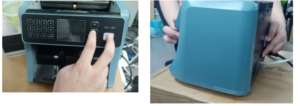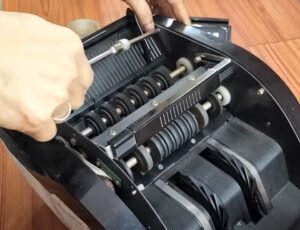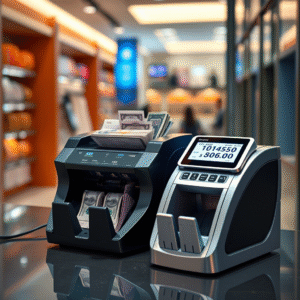Looking to buy a money counting machine? This guide breaks down the costs involved, from basic models to advanced features. We’ll cover different types of machines, factors influencing price, and provide practical advice for making the right choice for your needs.
Understanding the Basics: Types and Price Ranges
So, you’re looking at getting a money counting machine, huh? Smart move! It can save you a ton of time and hassle. But figuring out the “price of money counting machine” can feel like a maze. Let’s break it down. The price really depends on what kind of machine you’re after and what it can do.
First off, you’ve got your basic bill counters. These are pretty straightforward – they count the number of bills, plain and simple. Think of them as the entry-level option. These can range from around $100 to $300. They’re great for small businesses or individuals who just need a simple counting solution.
Then there are the more advanced machines. These can do things like detect counterfeit bills, sort bills by denomination, and even add up the total value of the stack. These are pricier, naturally. Expect to pay anywhere from $300 to upwards of $1000, or even more for high-end models used in banks.
Coin counters are another beast entirely. Small, basic ones for home use can be found for under $50. But commercial-grade coin counters and sorters can easily run you several hundred dollars, even exceeding $1000 for models that handle large volumes and multiple denominations.
Here’s a quick rundown table:
| Type of Machine | Typical Price Range | Pinakamahusay Para sa |
|---|---|---|
| Basic Bill Counter | $100 – $300 | Small businesses, individuals |
| Advanced Bill Counter (with counterfeit detection) | $300 – $1000+ | Businesses with higher cash volumes, retail stores |
| Basic Coin Counter | Under $50 | Home use, small cash drawers |
| Commercial Coin Counter/Sorter | $200 – $1000+ | Banks, large retail operations, arcades |
Key Factors Affecting the Price
Okay, so you’ve got a general idea of the price ranges. But what actually makes one money counting machine cost more than another? Several things come into play.
Counterfeit Detection: This is a big one. Machines with sophisticated counterfeit detection features, like UV, magnetic ink, infrared, and even image analysis, are going to cost more. These features add complexity and require better sensors.
Counting Speed: How fast do you need to count? Machines that can whiz through bills at a rate of 1000+ bills per minute will cost more than slower models. Speed comes at a price.
Hopper Capacity: The hopper is where you load the bills or coins. A larger hopper means you can load more at once, which is great for high-volume counting. Larger hoppers generally mean a higher price tag.
Sorting Capabilities: Do you need the machine to sort bills by denomination? Or coins by type? Sorting adds complexity and drives up the price.
Brand Reputation and Warranty: Just like with any product, brand reputation matters. Established brands with good reputations for reliability and customer support often charge more. A longer warranty can also add to the upfront cost but can save you money in the long run.
Batching and Adding Functions: The ability to batch bills (e.g., in stacks of 20 for bank deposits) or to add up the total value of the counted bills are valuable features that can increase the price.
Display and User Interface: A clear, easy-to-read display and an intuitive user interface can make the machine easier to use, but they also contribute to the cost.
Making the Right Choice: Practical Tips
Alright, so how do you actually decide which money counting machine is right for you? Don’t just grab the cheapest one you see! Think about your specific needs.
First, estimate your average daily or weekly cash volume. This will help you determine the required counting speed and hopper capacity.




